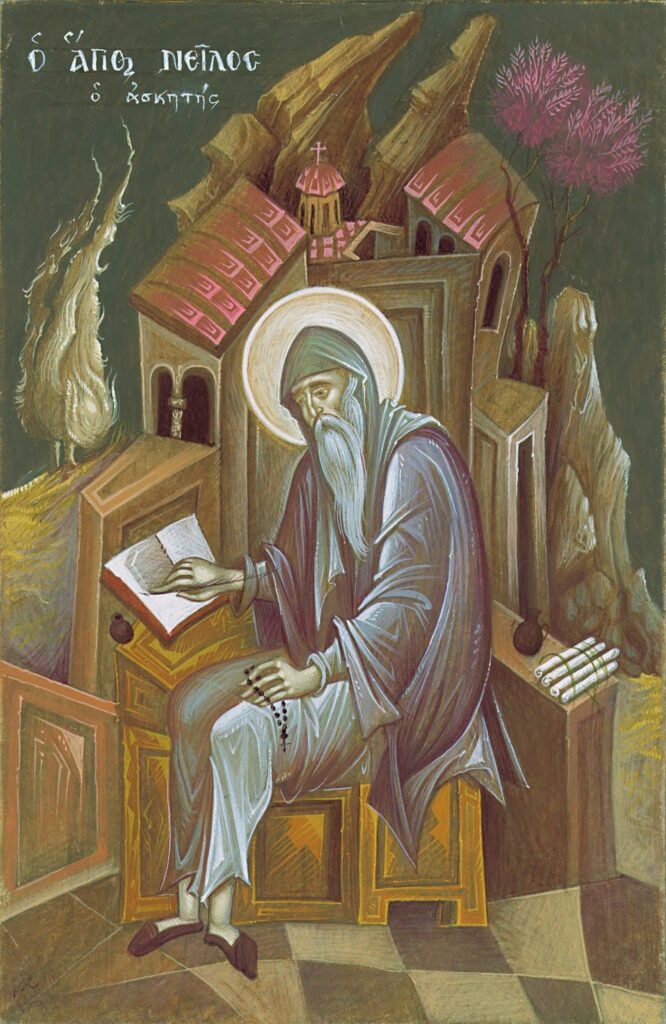
Born in the 5th
century in the city of Constantinople, Saint Nilus was raised in an established
family and received excellent education. At an early age, he was placed in the
highest governor position of Constantinople. While he was in this position,
Nilus married and he was blessed with several children. However, his duties
often interfered with his relationship.
At this time the holy and blessed Saint John Chrysostom lived in the area and Nilus was one of his disciples. Saint John Chrysostom had an immense influence on Nilus and his family. He became a close companion to Nilus and they had an admiration for each other. He guided them away from their distributive lifestyle and through God’s grace, he inspired both Nilus his wife and his children to lead monastic lives. Saint Nilus was very wealthy and he gave all of his possessions to the poor before leaving to the mountain.
Nilus’ wife and daughter joined a monastery in Egypt. Nilus and his son Theodulus traveled to Sinai where they built a cave dwelling with their bare hands. They remained in the cave for 40 years. With great prayer and fasting, Nilus was bestowed a very close relationship to Christ as well as the blessing of great spiritual wisdom.
Many noticed and saw his holiness, and came to him for to be consoled or for healing. Those who visited him differed from all classes, the rich and poor. Elite or farmers, for they knew he was a man of God. He was graced with the ability to speak well, and although he was meek, his words were able to move many to repentance.
Saint Nilus was also gifted with the ability to write, and he has many works aimed toward the benefit of the soul. He was full of spiritual wisdom as well as Earthly intellect and this is clear in his words. His works had led many to the road of salvation. The way he wrote was unique as he was direct and true. He kept the Orthodox faith alive in his texts, and opened the eyes of many for the real value of our soul.
During his time in the cave, his life was not easy. His son, Theodulus, was one day captured by barbarians who intended to sacrifice his body to the idols. Nilus’ was deeply distraught and he prayed to the Lord to have mercy. From his great faith Theodulus was saved, as the Bishop of Emessa who saw the young man with the pagans and took pity on him. It was some time later Nilus discovered his son had been bought from the barbarians by the Bishop of Emessa and was safely in his care.
When the Bishop met Nilus, seeing his grace and kindness he made both him and his son priests. After they were ordained they returned to the cave in Sinai.
Nilus and his son lived the ascetic life together for the remainder of his life until he then peacefully gave his soul unto the Lord. The Christian emperor Justinian took his holy relics when he reposed and they are now
His works are now found in the Philokalia, as well as in his own separate texts. Much of his work is dedicated to the levels of prayer and how to pray with a watchful heart. It is clear in his works that he was full of the Holy Spirit and truly a pure man of God.